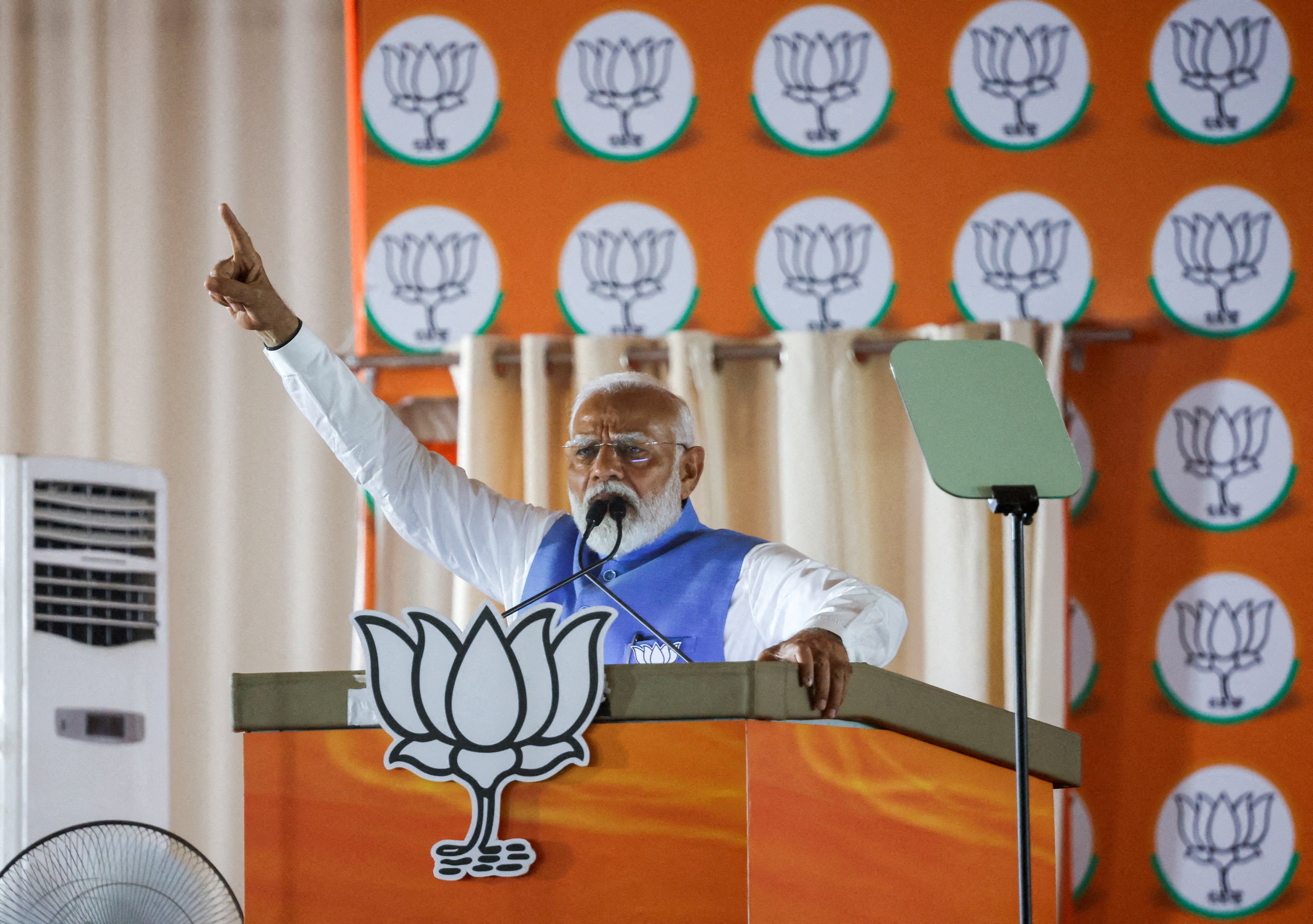June 04, 2024
Indian Prime Minister Narendra Modi is on track to narrowly win a third term in office, according to preliminary vote counts. Results show his Bharatiya Janata Party taking just 289 seats and the opposition winning 223, falling short of the expected landslide victory.
We’re likely to see Modi inaugurated within days, before jetting off to the G-7 meeting in Italy on June 13. Not a bad victory lap. For his return, he has laid out a “100-day” economic agenda that aims to put India on the path to becoming a developed country by 2047. That means building roads and railways, upgrading housing for low-income and middle-class citizens, updating labor laws, and concluding free trade agreements abroad, among many goals. With such a strong majority, the BJP will likely use a special “monsoon session” of parliament to get the ball rolling this summer.
Long-time India watchers will note the scant mentions in his campaign rhetoric of the Hindu-nationalist agenda that dominated much of Modi’s last two terms, and with good reason. Modi has largely fulfilled his promises to the ideologues, capping it off with opening the controversial Ram Temple in Ayodhya earlier this year. Now securely in power, Modi is looking to turn the volume down on cultural issues as he pursues economic development.
From Your Site Articles
More For You
- YouTube
China was largely absent from the core conversations at the 2026 Munich Security Conference. That, says Ian Bremmer, is telling.
Most Popular
- YouTube
At the 2026 Munich Security Conference, Brad Smith announces the launch of the Trusted Tech Alliance, a coalition of global technology leaders, including Microsoft, committing to secure cross-border tech flows, ethical governance, and stronger data protections.
When the US shift from defending the postwar rules-based order to challenging it, what kind of global system emerges? CFR President Michael Froman joins Ian Bremmer on the GZERO World Podcast to discuss the global order under Trump's second term.
TODAY at 12 pm ET: Watch our Global Stage live premiere from the Munich Security Conference
Feb 13, 2026
Tune in today at 12pm ET/6pm CET for the live premiere of our Global Stage from the 2026 Munich Security Conference, where our panel of experts takes aim at the latest global security challenges. NY Times National Security Correspondent David Sanger moderates the discussion with Benedetta Berti, Secretary General, NATO Parliamentary Assembly; Ian Bremmer, President & Co-founder, Eurasia Group & GZERO Media; Dr. Wolfgang Dierker, Global Head of Government Affairs, SAP; and Brad Smith, Vice Chair & President, Microsoft.
© 2025 GZERO Media. All Rights Reserved | A Eurasia Group media company.
